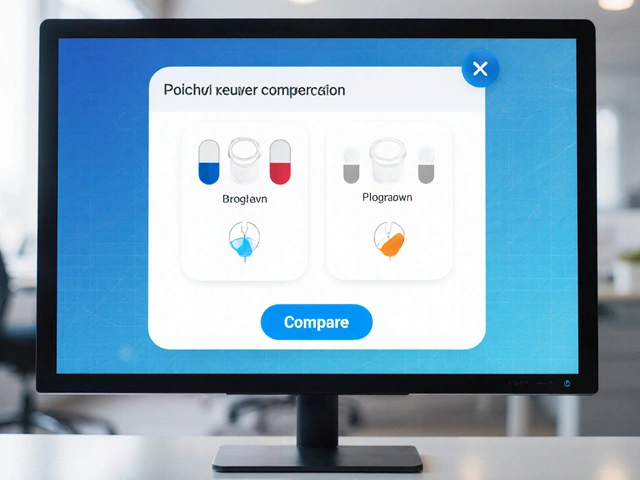Pregnancy books are a type of literature that provides expectant parents with medical advice, emotional support, and practical tips for each trimester. Reading the right guide can lower anxiety, improve nutrition, and boost confidence during labor.
Why Reading During Pregnancy Matters
Expectant mothers often face a flood of information-some reliable, some not. A curated book cuts through the noise, offering evidence‑based recommendations vetted by obstetricians, midwives, and parenting psychologists. Studies from the Australian Institute of Health (2023) show that women who regularly read reputable pregnancy guides report 22% lower stress levels and better adherence to prenatal appointments.
How to Choose the Right Book for Your Needs
Every pregnancy is unique, so the best book depends on three core factors:
- Focus area: nutrition, labor, mental health, or newborn care.
- Reading style: narrative memoirs, checklist manuals, or illustrated guides.
- Trimester relevance: some titles are organized by week, others by theme.
Start by listing the topics you feel least confident about, then match them to a book that specializes in that area.
Top Picks Across Key Categories
Below are the 15 most recommended titles, grouped by the primary need they address.
Nutrition and Wellness
The Complete Guide to Prenatal Nutrition is a comprehensive handbook that outlines daily nutrient targets, safe food substitutions, and meal‑planning templates, authored by dietitian Dr. Maya Patel. It includes a 4‑page chart of trimester‑specific vitamins and a QR‑code link to an Australian‑approved supplement database.
Labor and Delivery
Birthing Like a Pro is a step‑by‑step labor manual written by obstetrician James O'Connor. The book demystifies epidural options, breathing techniques, and the role of birth partners, with a dedicated chapter on water births.
Newborn Care
The First Six Weeks is a practical newborn care guide that covers feeding schedules, skin‑to‑skin bonding, and early warning signs of jaundice. It’s praised by the Royal Children's Hospital for its clear, illustrated instructions.
Maternal Mental Health
Calm Birth, Calm Mom is a mindfulness‑focused book authored by clinical psychologist Dr. Leah Kim. It integrates CBT exercises, journaling prompts, and post‑partum mood trackers.
Exercise and Physical Preparation
Fit for Two is a prenatal fitness guide that offers trimester‑specific workouts, safety checklists, and a printable weekly planner. The author, physiotherapist Roberto Silva, cites a 2022 study linking moderate exercise to 15% reduced pre‑eclampsia risk.
Storytelling and Inspiration
For those who love narratives, “My Birth Story: From Fear to Freedom” by Emily Hart blends raw memoir with practical tips, making it a comforting companion for late‑second‑trimester readers.
| Title | Author | Primary Focus | Pages | Recommended Trimester |
|---|---|---|---|---|
| The Complete Guide to Prenatal Nutrition | Dr. Maya Patel | Nutrition | 312 | All |
| Birthing Like a Pro | James O'Connor | Labor & Delivery | 256 | Late 2nd - 3rd |
| The First Six Weeks | Sophie Reynolds | Newborn Care | 198 | Post‑birth |
| Calm Birth, Calm Mom | Dr. Leah Kim | Mental Health | 224 | All |
| Fit for Two | Roberto Silva | Exercise | 280 | 1st - 3rd |
| My Birth Story: From Fear to Freedom | Emily Hart | Inspiration | 340 | All |
How to Make the Most of Your Reading Time
Set a realistic schedule: 10‑15 minutes after breakfast or during a calming evening routine works for most mums. Pair the reading with a hydration habit-keep a water bottle handy. Use the book’s checklists as a weekly review tool; tick off nutrition goals on Monday, breathing exercises on Thursday, and mood tracking on Sunday.

Integrating Books with Digital Tools
Many of the titles above offer companion apps or printable PDFs. Sync the Fit for Two workout planner with your phone’s calendar, or import the Calm Birth, Calm Mom journal prompts into Evernote. This hybrid approach keeps the tactile comfort of a book while leveraging reminders and data tracking.
Beyond Books: Related Resources to Explore
Reading is just one pillar of a healthy pregnancy. Consider adding these to your toolkit:
- Estimated Due Date calculator - free online tool from the Australian Department of Health.
- Prenatal yoga classes - many community centers in Melbourne offer subsidised sessions.
- Support groups - both in‑person and virtual groups provide peer‑to‑peer encouragement.
These resources complement the knowledge from your books, creating a well‑rounded support system.
Next Steps for Expectant Readers
1. Pick your top three priorities (e.g., nutrition, labor, mental health).
2. Choose one book from each priority and order or borrow it today.
3. Set a daily reading slot and note any questions that arise.
4. Bring those questions to your next antenatal visit-your midwife will appreciate the preparation.
Frequently Asked Questions
When should I start reading pregnancy books?
Most experts recommend beginning in the first trimester. Early reading helps you plan nutrition, schedule appointments, and mental‑prepare for labor.
Are there specific books for first‑time fathers?
Yes. Dad’s Handbook for Birth and The Expectant Father’s Guide focus on partner support, pain‑relief techniques, and post‑birth responsibilities.
Can I rely solely on books for medical advice?
Books are great for education, but they don’t replace professional care. Always confirm any treatment changes with your obstetrician or midwife.
What if I can’t find time to read?
Audiobooks are a solid alternative. Many titles in this list are available on platforms like Audible, letting you listen during commutes or while preparing meals.
Are there free resources comparable to the books listed?
Government health sites (e.g., the Australian Department of Health) publish downloadable PDFs covering nutrition, exercise, and labour basics. They’re evidence‑based but less narrative‑driven than commercial books.






Christopher Stanford
September 25, 2025 AT 00:35A lot of the titles listed lack original research, repeating the same generic advice that any obsGYN would give in a quick consult.
There’s little evidence they add value beyond what you can find on reputable health sites.
Steve Ellis
September 27, 2025 AT 14:29Honestly, I get where you’re coming from, but I’ve found that even the “standard” advice can feel reassuring when you’re in the middle of morning sickness.
Reading a familiar framework helped me keep my anxiety in check during the second trimester.
Jennifer Brenko
September 30, 2025 AT 04:22From a Canadian perspective, it is noteworthy that several of the recommended books do not reference the national prenatal guidelines published by Health Canada.
Aligning reading material with locally endorsed protocols can enhance relevance for expectant mothers residing in Canada.
Harold Godínez
October 2, 2025 AT 18:16Just a heads‑up, “midwife’s” should be spelled “midwives” when you’re talking about the profession in plural.
Other than that, the list looks solid for anyone wanting a quick reference.
Sunil Kamle
October 5, 2025 AT 08:10One might assume that compiling a list of fifteen books is a Herculean academic feat, yet the selections appear to be curated by someone who skimmed the back covers on a coffee break.
Nevertheless, the inclusion of a few evidence‑based titles does lend the list some credibility.
Michael Weber
October 7, 2025 AT 22:03If we contemplate the act of reading as a dialogue between self and society, then pregnancy literature becomes a mirror reflecting collective anxieties about creation and responsibility.
Thus, each page turned is not merely information intake but an act of existential negotiation.
Blake Marshall
October 10, 2025 AT 11:57FYI, “Birthing Like a Pro” actually has 256 pages, not 265 as some reviewers claim.
Also, the author James O’Connor is an OB‑GYN, not a midwife, which matters for the clinical perspective.
Shana Shapiro '19
October 13, 2025 AT 01:51The emotional journey of pregnancy can feel like a roller‑coaster of hope, fear, and wonder, and a well‑written memoir can serve as a lighthouse in those turbulent moments.
“My Birth Story: From Fear to Freedom” captures that raw vulnerability with poetic grace.
Jillian Bell
October 15, 2025 AT 15:45It’s hard not to wonder why major publishers push these particular titles while independent authors with more rigorous data stay invisible.
Perhaps there’s a hidden agenda to monetize every trimester.
Lindsey Bollig
October 18, 2025 AT 05:38Pro tip: set a timer for 15 minutes after you finish your morning coffee and use that slot to read a chapter.
Pair it with a glass of water and you’ll build a sustainable habit without feeling overwhelmed.
Daniel Buchanan
October 20, 2025 AT 19:32Remember that every pregnancy is unique, so feel free to blend insights from multiple books to craft a plan that feels right for you.
Your journey deserves flexibility, not a one‑size‑fits‑all blueprint.
Lena Williams
October 23, 2025 AT 09:26When I first started looking for resources during my first trimester, I was bombarded with glossy advertisements promising the perfect birth plan.
I quickly realized that none of these ads could substitute for a grounded, evidence‑based approach.
Scrolling through endless Amazon lists, I stumbled upon the article that highlighted fifteen books, which sparked my curiosity.
Instead of taking the list at face value, I decided to cross‑reference each title with the latest guidelines from the Royal College of Obstetricians and Gynaecologists.
What I found was a mixed bag: some books like 'The Complete Guide to Prenatal Nutrition' aligned closely with recommended micronutrient intakes, while others leaned heavily on anecdotal stories.
I also paid attention to the authors' credentials, noting that books authored by registered dietitians or certified midwives tended to provide more actionable tips.
One surprising discovery was that the 'Fit for Two' fitness guide cited a 2022 study linking moderate exercise to a 15% reduction in pre‑eclampsia risk, which matched my own doctor's advice.
Conversely, a few titles glossed over the importance of mental health, an oversight that could leave readers unprepared for postpartum mood fluctuations.
To make the most of my reading time, I divided each week into thematic blocks: nutrition on Mondays, labor techniques on Wednesdays, and newborn care on Fridays.
I printed out the checklists included in each book and stuck them on my fridge, turning the abstract advice into concrete, daily actions.
During my second trimester, I found the mindfulness exercises from 'Calm Birth, Calm Mom' to be a lifesaver during those restless nights.
I also integrated the breathing drills from 'Birthing Like a Pro' into my prenatal yoga sessions, which helped me build both confidence and stamina.
By the time I reached my due date, I felt armed with a toolbox of strategies rather than a vague sense of dread.
Looking back, the process of critically evaluating each book taught me a valuable lesson about consumer literacy in the healthcare space.
I would encourage other expectant parents to adopt a similar skeptical yet open‑minded stance when navigating the sea of pregnancy literature.
After all, the best preparation combines trustworthy information, personal reflection, and a dash of practical experimentation.
Sierra Bagstad
October 25, 2025 AT 23:19According to the 2023 Australian Institute of Health study, women who consult reputable pregnancy books experience a 22% reduction in reported stress levels during prenatal visits.
This statistic underscores the tangible benefit of informed reading.
Alan Kogosowski
October 28, 2025 AT 12:13There’s something almost ritualistic about opening a new pregnancy guide and feeling the crisp pages beneath your fingertips.
It signals a transition, a moment where the abstract notion of “baby” becomes a concrete project you can plan for.
Many readers find themselves highlighting sections on fetal development, savoring the gradual unfolding of anatomical milestones.
Others gravitate toward the labor chapter, rehearsing breathing patterns as if preparing for a marathon.
The act of note‑taking, whether in margins or on a separate notebook, transforms passive reading into active learning.
One habit I’ve cultivated is to write a short reflection after each chapter, noting any personal anxieties that surfaced.
This practice not only reinforces the material but also provides a therapeutic outlet for pent‑up emotions.
In the end, the synergy between a well‑chosen book and a disciplined reading schedule can make the pregnancy journey feel both manageable and meaningful.
Ben Lee
October 31, 2025 AT 02:07I’ve seen many first‑time parents benefit from pairing a nutrition guide with a simple meal‑prep routine.
It reduces decision fatigue and ensures you’re getting the right nutrients without overthinking every snack.
Rajashree Varma
November 2, 2025 AT 16:00Embracing the wisdom found in these books can be likened to planting seeds of confidence that will blossom when the time comes to welcome new life.
May your reading journey be as nurturing as the love you already hold.
Anshuman Pandey
November 5, 2025 AT 05:54Consider each chapter as a stepping stone across a river of uncertainty; with each step you gain steadier footing toward the shore of informed parenthood.
Let the knowledge empower you, not overwhelm you.
Thomas Malloy
November 7, 2025 AT 19:48Reading a chapter a day keeps the anxiety at bay.
Sushma Gowda
November 10, 2025 AT 09:41Combine the practical tips from the nutrition book with the mindfulness exercises from the mental health guide, and you’ll have a holistic approach that supports both body and mind during pregnancy.
Angie Wallace
November 12, 2025 AT 23:35Great list, very helpful.